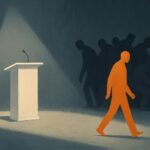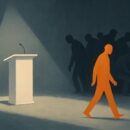Dump these outdated ideas about education
In education lies our future. We won’t take off as a nation until we learn to learn, and keep learning. Education bestows discernment; discernment allows us to make good decisions and good choices; decisions and choices drive performance and growth.
So far, so good. But all of that is hogwash if we don’t understand what education actually is. Or rather, what it isn’t. In Kenya we suffer from the widespread acceptance of an unfortunate theory, which we might call the Quantity Theory of Education. This theory has two precepts: one, that the more formally educated a society is, the more advanced it is likely to be; and two, that the more hours you spend in a classroom, the more educated you are. Both are wrong.
Jean-Pierre Lehmann, professor of international political economy at IMD, in Lausanne, Switzerland, wrote a provocative piece recently for the European Business Forum Newsletter. In his article he attacked the two misconceptions about education with gusto.
Education per se may actually be useless, said the good professor. To quote him: “The Chinese elite of the mid/late 19th century were highly ‘educated’. But this did not prevent China from experiencing the greatest decline of its long history. The problem was that while they were exerting huge efforts and time in learning, what they were learning (the Confucian classics) was useless for the industrial imperial age; the more they learned, the more China went down the tubes.
The Japanese, in contrast, understood this well and so proceeded to undertake thorough educational reforms. They emphasised commerce, management, technology, military science, but also, especially, Western languages, history, literature, philosophy, painting and music, thereby recognising the seemingly inexorable rise of the West at the time and, consequently, Japan’s need to learn and adapt to survive. In fact, Japan thrived, emerging from feudal isolation in the 1860s to world power status in three decades. China, in the meantime, continued to sink.”
Prof. Lehmann points out that China’s current resurgence is driven by the abandonment of extreme Maoist dogma. In other words, the fact that China’s education platform is now relevant to the age is the driver of its growth.
The professor is equally scathing about what is termed “diploma disease”: the thirst for accumulating paper results and a clutch of degrees, diplomas and certificates. We measure our education in terms of classroom-hours and associated pieces of paper.
I can’t put it any better than the writer: “Education has a much broader and deeper meaning; it is not confined to time or space, it is an attitude, a constant search for learning founded on an insatiable curiosity. An ‘educated’ person is not only someone who knows a great deal, but someone who wishes to learn in any circumstance, who poses questions, who probes, reflects and assimilates, to gain both knowledge and wisdom.” For such a person, formal instruction is only a small part of the story.
We recognise this problem in Kenya, do we not? The current cabinet and the higher echelons of the civil service contain many learned scholars, with many letters (supposedly reflecting academic excellence) appended to their names. But how has Kenya benefited from this knowledge? The normal daily behaviour of the average well-schooled minister betrays the fact that little learning was gained in all those hours in the lecture-room.
Many of our business leaders are also eschewing the acquisition of meaningful knowledge. The typical Kenyan business leader falls into one of two categories: the first, proudly displaying the MBA obtained at the top-notch international business school (whose name is brought into every conversation); and the second: loudly proclaiming that he graduated from ‘the university of life’ (i.e. stopped schooling after the primary years).
This is a shame, for the modern business executive has much to learn. Professor Lehmann points out in his article: “In the highly complex and interconnected world of today, where everything – geopolitics, finance, security, theology, demographics – is connected to everything, a great deal more depth, knowledge and wisdom are, and will increasingly be, required.”
The modern business executive “must be well equipped with four attributes: business acumen, global knowledge, an ethical compass and committed citizenship. All this requires sound education – not just knowledge, but also wisdom.”
We must judge our leaders by their wisdom in the world they lead us in. It is no small matter to be a leader today; great understanding of a very complicated world is required. It is therefore nonsensical to think that some of us have nothing to learn, no matter how old, exalted or learned. The opposite is true: the higher you go in life, the more there is to marvel at and to be astounded by.
Some of our leaders know this. I ran a course in business strategy recently, and was very pleasantly surprised to find the chairmen and chief executives of some of our leading organisations enrolling and participating for a full five days. There are not many like them; but they are an example to us all. It’s never too late to learn.

Buy Sunny Bindra's new book
The X in CX
here »
Popular Posts
- We’re letting the bad drive out the goodJuly 20, 2025
- The map will appear—once you start walking.July 6, 2025
- The grace of the giverJuly 27, 2025
- Some lives are lived on the peripheryAugust 3, 2025











